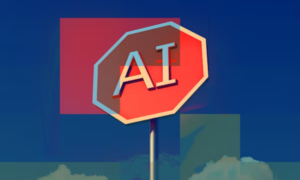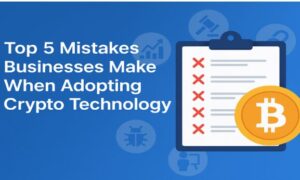Information technology (IT) refers to the whole universe of hardware, software, systems, infrastructure, functions, and processes that enable businesses to create, receive, transmit, store, process, and secure electronic data. IT is crucial in the digitisation, digitalisation and digital transformation of organisations. Data and information enable businesses to improve or re-engineer their processes, personalise and enhance customer experiences, upskill their employees, and boost efficiency, agility, productivity, and profitability for maximum growth.
However, the breadth and depth of the IT domain underscores the importance of an IT system integrator. They will gauge your business goals – what you wish to achieve with your IT initiatives. Based on that, they will conceptualise, plan and design a system to enable you to achieve your objectives.
Governments have much to gain from information technology solutions. IT can modernise government operations, making governments more efficient and responsive to the public’s needs. IT also safeguards critical infrastructure (power, utilities, communications, etc.), ensuring uninterrupted services and operations.
Information technology systems and infrastructure help governments address critical needs, streamline processes, enhance security, and improve service delivery. They amplify the efficacy of organisations, leading to better client experiences.
Below are specific applications and use cases of IT in governments and critical infrastructure.
Enhancing Public Services
IT systems revolutionise the way governments collect information and how the public interacts with the government. E-governance platforms allow citizens to access services online, such as applying for permits, paying taxes, registering for social services, filing complaints, requesting public information, and many more. The public can apply for a national ID, driver’s licence and passport online and request a copy of their birth certificate, marriage certificate and other vital documents.
E-governance platforms reduce wait times, minimise paperwork and increase transparency. They also make government services and agencies more accessible.
Facilitating Information Dissemination
Online government bulletins enable a quicker dissemination of critical information. Policies and laws are published on government websites, official social media accounts and media partners. The government can readily publish its stance on issues, assure the public and announce plans.
Improving Emergency Response
Advanced communication networks with built-in redundancies ensure rapid and reliable coordination among agencies during crises. During typhoons, earthquakes, armed insurrections, and other potentially catastrophic events, IT helps governments secure their communication backbone and ensure an uninterrupted flow of commands and information.
Geographic Information Systems (GIS) provide real-time mapping, aiding in efficient resource deployment during natural disasters or public health emergencies. Additionally, predictive analytics can help anticipate and mitigate potential threats so government agencies can initiate risk management strategies, including creating contingency plans.
Securing Critical Infrastructure
IT solutions fortify the security of essential infrastructure, such as power grids, water supply systems, transportation networks, and communication lines. They ensure service continuity.
IT best practices and standards ensure physical and logical access controls that prevent unauthorised incursion, data breaches, theft, vandalism, and cyber threats. Systems can monitor and control infrastructure operations and detect anomalies indicating security breaches or equipment failures. Cybersecurity measures protect against cyber-attacks, ensuring government agencies can operate continuously and safely.
Streamlining Administrative Functions
Automated systems help streamline administrative functions in government agencies. Enterprise Resource Planning (ERP) software integrates different departmental functions, such as customer service, finance, procurement, and human resources into one unified platform.
Front-line government personnel must input data only once, and that information becomes available through the government information system. This ensures a better quality of service because government employees have access to the information they need to cater to the public’s needs; it also enhances client experience because people don’t have to repetitively fill out forms every time they visit a government office.
Systems and data integration lead to fewer encoding errors, eliminate data duplication, improve data management, reduce operational costs, and strengthen governments’ decision-making capabilities.
Enhancing Public Safety
IT enables better surveillance and crime prevention. Intelligent surveillance systems with facial recognition, behaviour analysis and machine-learned algorithms can detect suspicious activities in real time. Artificial intelligence systems can automate notifications and alerts to first responders, while data analytics supports law enforcement agencies by helping them identify crime patterns and deploy resources effectively.
The Benefits of an IT System Integrator
There are many potential use cases for IT and many possible implementations. This can be beneficial, but it can also be overwhelming. This is why you need an IT system integrator.
System integrators orchestrate everything and build IT systems from the ground up. They decide the hardware, software, and infrastructure you require, ensuring the components they choose will seamlessly work together. They connect or integrate these into a unified system and provide training on corresponding functions and processes.
IT consultants do not offer piecemeal technology but plug-and-play, ready-to-use turnkey solutions. They can guarantee that your resulting IT system, network and infrastructure have been precisely designed for your specific industry, use case and application.
Having a system integrator onboard ensures a successful IT solution implementation and operations. They bring several advantages, including the following:
- Expertise and experience: You may not know your software, hardware, and how they come together, but IT consultants do. They possess technical know-how and experience handling complex IT projects.
- Customised solutions: Integrators tailor solutions to meet specific needs. They can ensure the compatibility of your new IT infrastructure with existing systems and address unique operational challenges.
- Project management: An IT consultant will manage your entire IT project lifecycle, coordinating among vendors and suppliers and minimising disruptions.
- Ongoing support: System integrators can provide continuous support and maintenance, ensuring systems operate smoothly and stay up to date and efficient.
Effectively Implementing IT
IT is invaluable in modern organisations, including governments, as they are in charge of critical infrastructure on which the public heavily relies. However, IT solutions must be carefully planned and thoughtfully integrated for optimal efficiency, productivity and client experience gains.



































